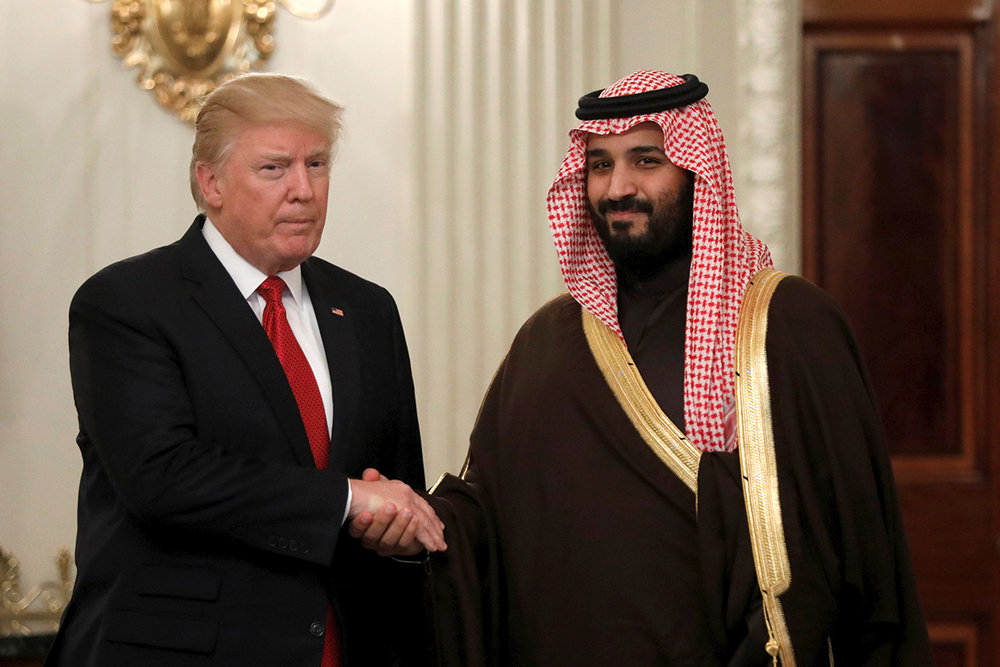Tehran – In a commentary on March 31, British newspaper The Guardian wrote an article that the Persian Gulf Arab countries are opposed to the possibility of a US attack on Iran’s nuclear facilities, which they believe will make the Middle Eastern region even more uncertain.
“The widespread rejection of US-inspired attacks on Iran’s nuclear facilities in the (Persian) Gulf is a relatively new factor in this equation, and Trump’s plan to visit Saudi Arabia on his first overseas trip reportedly allows us to personally hear strong opposition to the attack on Iran from the Saudi prince.
Below is the text from an article entitled “Trump’s threat to bombing Iran’s nuclear programme stimulates repulsion.”
Iran responded to anger after Donald Trump said that if we didn’t accept the demand to restrain us to constrain the nuclear program, the country would be bombed.
The US president said on Sunday that Iran “if they don’t make a deal, there will be bombings. They will bomb things they have never seen before.”
Trump’s latest threat — more clear and violent than previously made — offered consultations on its nuclear program, still private after he sent a letter to Iran. Iran has sent a reply to the US saying it is happy to hold indirect consultations, officials confirmed.
Esmail Baghhai, a spokesman for Iran’s Ministry of Foreign Affairs, said of the Trump threat:
“This threat is a serious violation of the UN Charter and protecting the government that protects the International Atomic Energy Agency. Violence brings violence and peace and creates peace.”
“This threat is a serious violation of the UN Charter and protecting the government that protects the International Atomic Energy Agency. Violence brings violence and peace and creates peace.”
Leader Ayatollah Ali Khamenei is skeptical of talks with the US, and Iran said that Trump’s words were “not overly concerned.” “We believe that such harm is unlikely to be brought outside. However, if malicious acts occur, it will certainly be filled with the company.
And a critical response,” he said.
Brig. General Amir Ali Hajizadeh, commander of the Aerospace Forces of the Revolutionary Guard, said, “Anyone in the glass house will not throw stones at anyone,” and said, “Americans have 10 bases with at least 50,000 men. That is, they are sitting in the glass house.”
However, Iran’s foreign minister Abbas Aragci clearly had the authority to continue living the prospects of discussions, but he said Iran had already responded to Trump’s letter through an Omani intermediary, saying the Iranian letter had reached the United States.
Trump sent his original letter suggesting consultations through Anwar Ghagash, a senior diplomatic mission in the United Arab Emirates.
Trump has set a deadline in mid-May, but the deadline in mid-August will also be long. By then, the original 2015 nuclear agreement would be significantly expired, requiring a European response. Trump removed the United States from the agreement in 2018. This is widely viewed as a mistake as Iran has started to speed up its uranium enrichment programme.
Iran sent a reply not through the United Arab Emirates but through Oman, a traditionally chosen mediator, and may suggest that Iran does not want the United Arab Emirates, which normalized relations with Israel, to act as an intermediary. The US and Iran had been holding indirect talks on reviving the nuclear deal under the Biden administration in Vienna since 2021, but they wiped it out, and all aspects agreed to the indirect nature of the consultation.
Part of the ground is covered in four rounds of parallel consultations between Iranian and European negotiators in Geneva.
Tehran has not commented on how Trump’s letters have progressed widely by demanding concessions from Iran. However, Iraqi ambassador Mohammad Qazem al-Sadegu showed that the US wanted consultations wider than the nuclear program, saying the letter called for the dissolution of Iraqi mass mobilization forces supported by Iran.
The US administration is split on whether it simply requires the release of Iran’s civil nuclear program to be made to more comprehensive international testing, or whether it will make a broader demand, including the complete end of the nuclear program and the Iranian commitment to halt Middle Eastern resistance groups such as Hamas in Yemen and Hauches in Yemen.
US national security adviser Mike Waltz is calling for a “complete dismantling” of Iran’s nuclear programme that Tehran rejects. In contrast, Trump’s special envoy, Steve Witkov, spoke only about limiting Iran’s nuclear program. Iran has been accepting it since 2015 as long as it leads to lifting sanctions on Iran’s economy.
Kamal Karaj, head of Iran’s Strategic Council on Diplomatic Relations and sometimes promoted as the chief negotiator, accused the US of running a psychological warfare by adopting a policy of “war or negotiation.”
The widespread rejection of US-inspired attacks on Iran’s nuclear facilities in the Persian Gulf is a relatively new factor in this equation, and Trump’s plan to visit Saudi Arabia on his first overseas trip means that he can personally hear strong opposition to the attack on Iran from the Saudi prince.
The Persian Gulf’s opposition to an attack on Iran is based on its close ideological affinity with Iran, but the region must avoid further political instability.

